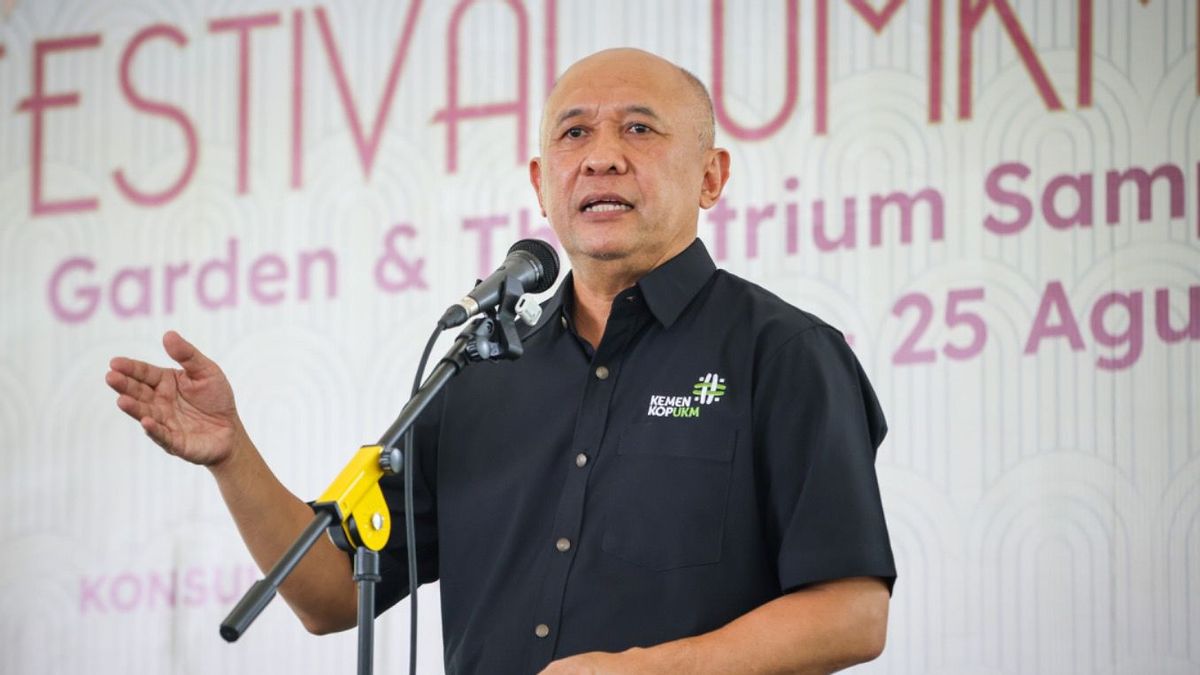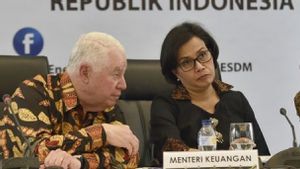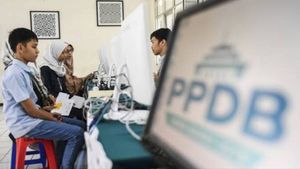JAKARTA - The Ministry of Cooperatives and SMEs (Kemenkop UKM) said, now is the time to realize the collaboration of large businesses to create global supply chain MSMEs that are highly competitive.
"We encourage big efforts to provide technology transfer support for UMK so that there will be an increase in the business of UMK players. So, in the future UMK players will not always be producers of finished goods, but can become suppliers of necessities in large industries," said Minister of Cooperatives and SMEs (Menkop UKM) Teten Masduki in a written statement received by VOI, Tuesday, August 22.
Minister Teten said that the MSME posture, which is dominated by micro-enterprises, has made the pattern of partnerships between micro-enterprises and small businesses and large businesses a strategy to classify MSMEs.
He added that the Kemenkop UKM continues to initiate the realization of the partnership. His party also encourages UMK players to produce the products needed along the value chain of large business.
"So far, we have continued to encourage MSMEs to advance to class. One of them is related to efforts to facilitate licensing for MSMEs through assistance. So, there are no more informal MSMEs, at least they have NIB (Trying Identification Number), and even make it easier for them to get halal certification, including financing," he said.
Teten mengungkapkan, ketidakpastian ekonomi global tahun depan masih akan terjadi. Namun, Indonesia masih tetap optimismis pertumbuhan ekonomi di atas lima persen. Bahkan, sudah sekitar tujuh triwulan terakhir ekonomi Indonesia tumbuh di atas 5,2 persen.
Dari negara G20, hanya Indonesia negara berkembang yang mengalami pertumbuhan di atas 5 persen, selain India dan China.
One of these growths, continued Teten, the biggest contribution to national economic growth is from household consumption which is closely related to MSMEs.
اقرأ أيضا:
"Only one percent of the economy is controlled by large businesses. So how is this to keep going? This one percent large economy-controlled economy must continue to innovate and develop its business so that the supply chain continues," he concluded.
Based on data from the Ministry of Cooperatives and SMEs in 2019, there were approximately 64 million units of Micro Enterprises (99.9 percent of the total business population) that had a good impact on the national economy, such as contributing to GDP (61.07 percent), labor (96.9 percent), non-oil and gas exports (14.4 percent), MSMEs that entered the global value chain (4.1 percent), national MSME investment (60 percent), UMK and UMB partnerships (7 percent), and national entrepreneurship ratios (3.47 percent). percent).
Various efforts continue to be made to develop MSMEs in Indonesia, as well as help overcome the problems faced by MSMEs in their business. Collaboration is the main key to developing this very large number of MSMEs.
The English, Chinese, Japanese, Arabic, and French versions are automatically generated by the AI. So there may still be inaccuracies in translating, please always see Indonesian as our main language. (system supported by DigitalSiber.id)
















